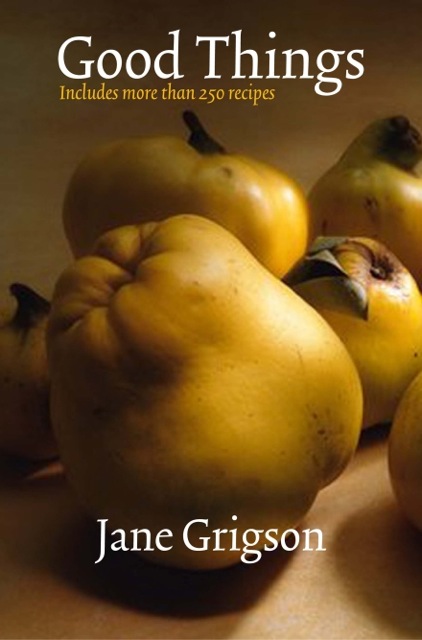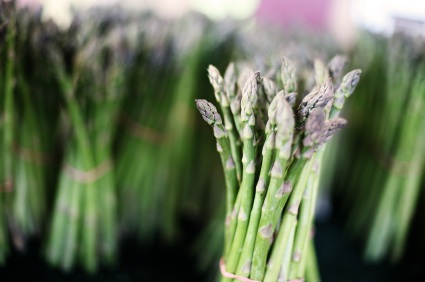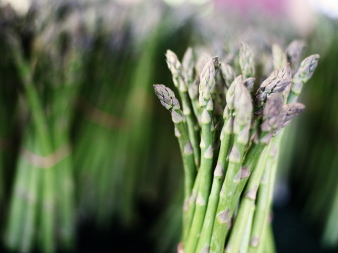
reference-image, l
(article, Jane Grigson)
h3. From the chapter “Asparagus” How would you describe the best asparagus? Thick, certainly. Fresh certainly, as, whatever kind is grown, its flavor will deteriorate with delay. No argument here. But after that, would you prefer it to be blanched white? Or white with a yellowish head? Or green and white streaked with pinkish purple? Or as green as possible? [[block(sidebar). h1. About the book and author For more than 20 years, the British writer Jane Grigson penned cookery columns for the Observer Magazine; much of these personable, thoughtful articles were later collected into 1971's Good Things, among other books. Her 1990 obituary in the Independent stated that "Jane Grigson was above all a friendly writer ... often catching the imagination with a deftly chosen fragment of history or poetry, but never failing to explain the 'why' as well as the 'how' of cookery." Excerpt reprinted with permission of the University of Nebraska Press imprint Bison Books (2006). ]] The answer will tell me more about you than about absolute standards of asparagus perfection. Italians like white asparagus with a yellowish head. The French like their violet and green and white spears. And the English and Americans like unblanched, tender greenness. In our favor, I will modestly add that European chefs working in England have said, do still say, that our fresh asparagus beats all for flavor. That’s the theory anyway. In practice, your answer would more likely have been curt, rather than considered: “The best asparagus is the asparagus I can afford — when I can find it.” There is an aura of aristocracy, a mystique of asparagus which seems to stop gardeners growing it. And English housewives buying it. Asparagus is not for us. Its past is long, cherished and peppered with great names. Pliny described asparagus spears weighing four ounces. Louis XIV ate asparagus in January — did it, I wonder, have any flavor at all? — forced in his gardens in Versailles. Pepys bought “sparrowgrass” (it’s still called “grass” in the trade) in 1667 in Fenchurch Street, a hundred spears for 1s.6d. Proust’s eye was caught by the rainbow asparagus lying on his aunt’s kitchen table at Illiers. I remember as a child being told by an elderly gardener in Gloucester that the huge bed we were contemplating had taken seven — or was it 10? — years to establish. I forget his exact figure, but recall that it exceeded the number of years it had taken to establish me in the same world. He was choosing the finest asparagus for a luncheon party. Severn salmon and strawberries were to complete the meal. It all sounded very grand. [%image asparagus float=right width=350 caption="Fresh green asparagus at a farmers' market." credit="Photo: iStockphoto/Stalman"] In fact the old man was quite wrong with his figures. With modern methods, planting one-year-old crowns, English kitchen gardeners can pick a little asparagus the first season, more the second, and as much as one likes the third. Given all this hard work and intelligence, it seems ridiculous that in our country of cheap food we can’t buy good cheap asparagus. It makes me angry that we haven’t encouraged growers to grow more. Are we of all the people in Europe so cowed by past grandeur that we cling to cabbages and to giant, stringy scarlet runners and Olympian marrows? What a waste of ground. [[block(sidebar). h1. Featured recipe]] I have this image of early summer, May and June. We walk home slowly up the village street, which runs across the cliff at a kindly slope. Children scream out of school, and flow politely past our slower feet into open cottage doors. The air pulses with the warm smell of lilac, but as we pass each door, the lilac dominance is subdued by heady wafts of asparagus cooking. This is not Utopia. It’s a poorish village, less than 300 miles south of London. The inhabitants have the sense to grow asparagus, that’s all. If they haven’t a garden patch across the river, they can buy asparagus in the village shop. No aristocratic aura. Not even a whiff of bourgeois privilege, just a universal smell of asparagus.

reference-image, l

asparagus, l

featurette-image, l

feature-image, l

promo-image, l